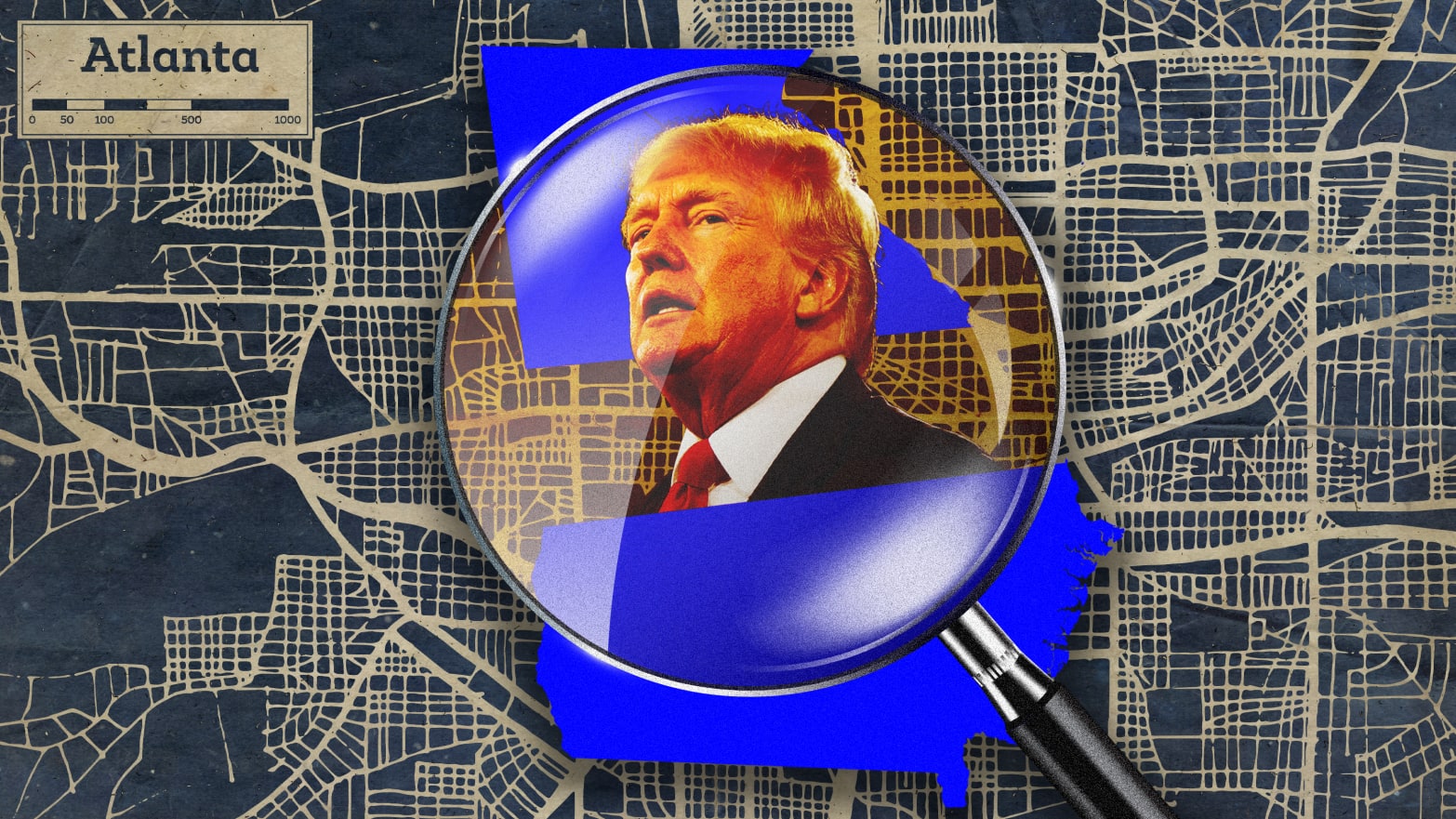With Monday’s Mar-a-Lago raid, there’s even higher expectations that the justice system may hold Donald Trump accountable in some fashion. But if charges from the Department of Justice never materialize, many Americans are holding out hope for an indictment from the special grand jury in Fulton County, Georgia.
They shouldn’t.
In the Peach State, prosecutors can put together a “special purpose grand jury” to conduct a deeply researched, year-long investigation that uncovers evidence of complicated crimes.
But, by law, the 23-person panel can only issue an official report that recommends further action. It’s up to the local district attorney to read that report and then determine whether or not they’ll put together a regular grand jury and actually seek an indictment.
That decision will fall on District Attorney Fani Willis, a first-term Democrat whose very first day on the job in 2021 involved hearing about how Trump had just tried to intimidate Georgia’s top elections official to “find 11,780 votes” that didn’t exist.
She soon put together a reconfigured public corruption team and set them to work. A year later, they opted for a special grand jury that started May 2.
The issue of special grand jury limitations came up last Friday, when attorneys for Sen. Lindsey Graham (R-SC) brought them up in court filings. Graham is trying to fight off a subpoena demanding he testify about the time he asked Georgia Secretary of State Brad Raffensperger whether he could simply toss out mailed ballots. Pursuing that angle, his attorneys are trying to make it seem that the current grand jury isn’t set up to take action.
“The District Attorney never alleges that anyone committed a crime. And indeed, she instituted not a criminal grand jury that could indict, but rather a civil ‘special purpose’ investigative body that cannot,” wrote Brian C. Lea, the senator’s defense attorney at the white-shoe law firm Jones Day.
That doesn’t, however, quite capture what’s actually going on.
According to three legal scholars who worked for decades in Georgia’s criminal courts, a special purpose grand jury is actually a powerful vehicle for setting up massive criminal cases against corrupt politicians and drug trafficking gangs—especially when you’re taking down a crew that operates like a mob.
“In Georgia, it’s primarily been used for government corruption cases and secrecy. The special purpose grand jury is an investigative tool that the prosecutor can use,” said B. Michael Mears, a professor at John Marshall law school who previously led the state’s public defender’s office.
In some ways, this special grand jury can go where regular grand juries can’t.
In Fulton County, which covers roughly half of the mega-metropolis of Atlanta, a regular grand jury only runs for two months. That might be enough time to investigate a robbery or murder, one current prosecutor said. But as a local district attorney targeting the former president—who sits atop a $107 million war chest made up of political donations from Republicans nationwide to his Save America political action committee—Willis is venturing into uncharted waters. And every step must be perfect, legal scholars noted.
“Any criminal charges that flow out of this process will be so important, so nationally noticed, that the district attorney wants to be very careful to leave no stone unturned,” said Ronald L. Carlson, a professor at the University of Georgia’s law school.
“This sort of investigation is so wide-ranging and impactful, it merits first the fact-finding of a special grand jury relatively unlimited in time. They don’t have to finish up by the end of July or something like that,” he said.
Instead, this special panel has until May 2023 to wrap up its work. And in that time, these grand juries can be home for aggressive tactics that don't fly elsewhere.
For instance, witnesses close to a criminal conspiracy cannot be forced to testify and incriminate themselves—hence why people plead the Fifth and stay silent. But because this is a civil matter, these jurors can offer someone “use immunity,” which shields them from criminal charges and forces them to spill the beans.
“You can lock testimony down. You can force people to come testify. And you can prevent them from changing their testimony later on,” Mears said. “In a regular grand jury, that type of coercion is not used.”
“The special grand jury can say, ‘We're not indicting. We'll ask the judge to grant you use immunity.’ If you take away the possibility that person can be indicted because they may say something, then there's no purpose invoking the Fifth Amendment. It allows the special purpose grand jury to develop testimony to get other leads,” he continued.
It's unclear if the special grand jury will yet succeed in dragging the South Carolina senator into court for a closed door session where he would have to testify under oath—and risk jail time for lying or remaining silent. Graham’s legal team did not respond to requests for comment from The Daily Beast.
Prosecutors reserve these types of year-long grand jury investigations when the case is sprawling and complex, a current prosecutor in another part of Georgia told The Daily Beast. (He asked to remain unnamed, because he is not authorized to speak with the press.)
Little over a decade ago, the Gwinnett County district attorney asked the local superior court judges to put one together when it investigated county commissioners over property deals. When former Commissioner Kevin Kenerly refused to testify in 2010 about how he was bribed, the special purpose grand jury immediately indicted him. And while a Georgia appellate court later ruled that the panel had no authority to indict him, the evidence had already mounted. He left office and pleaded guilty four years later.
Legal scholars explained why using a regular grand jury to simply indict Trump wouldn't make sense. Prosecutors cannot issue subpoenas on their own, they said, so Willis would have to impanel some kind of grand jury to investigate Trump.
But a regular grand jury’s tight, two-month deadline would not work either. In Georgia, regular grand juries that get extended are closely scrutinized by appellate judges who could overturn their work. And failing to secure an indictment during two separate regular grand jury sessions prevents you from ever actually indicting them in the future with a third grand jury.
Legal scholars also explained that Willis could use this approach to counter the cheap criticism that she, a Democrat, is merely succumbing to politics by attacking the most hated Republican alive. In a speech at a rally in January, Trump claimed the prosecution is politically motivated and hinted at the idea that she, a Black woman, is motivated by racism against him, a white man.
In a separate statement that same month, Trump said, “What this Civil Special Grand Jury should be looking into is not my perfect phone call, but the large scale voter fraud that took place in Georgia. Then they would be doing a great job for the people. No more political witch hunts!”
But by relying on the work of nearly two dozen fellow Georgians, Willis can stand behind her sample of the citizenry.
“It gives her some political cover,” Mears said. “It also expands her investigative ability. She now has 23 deputies out there with the authority to subpoena people. This grand jury can become very independent. They could decide who to ask to come in.”
And all the evidence they collect, including the transcripts of witness testimony, can be presented to a future grand jury that can indict.
“This grand jury will influence the criminal process immensely,” Carlson said.

